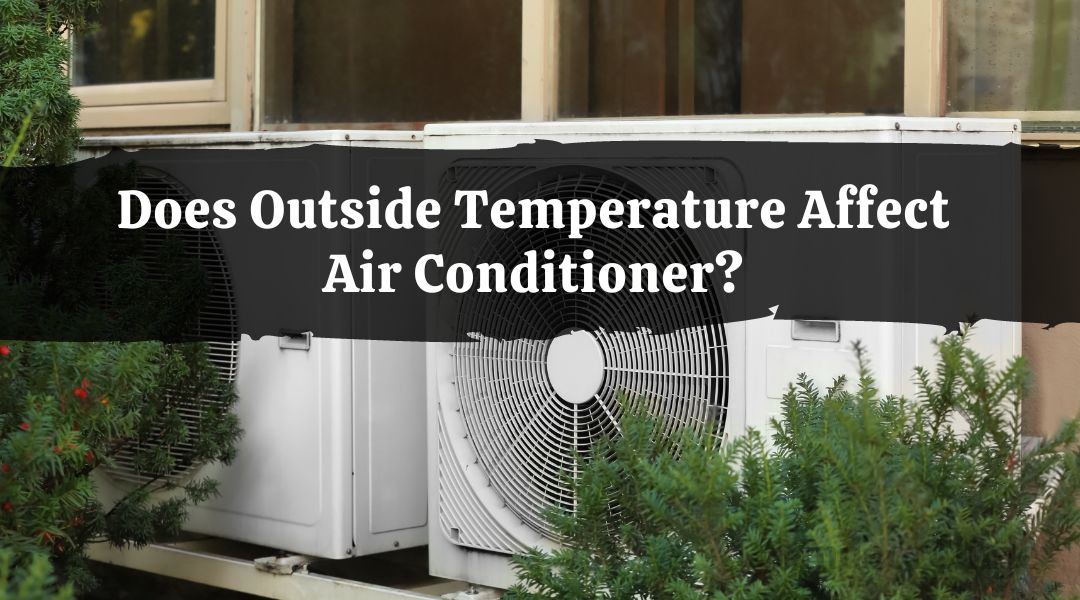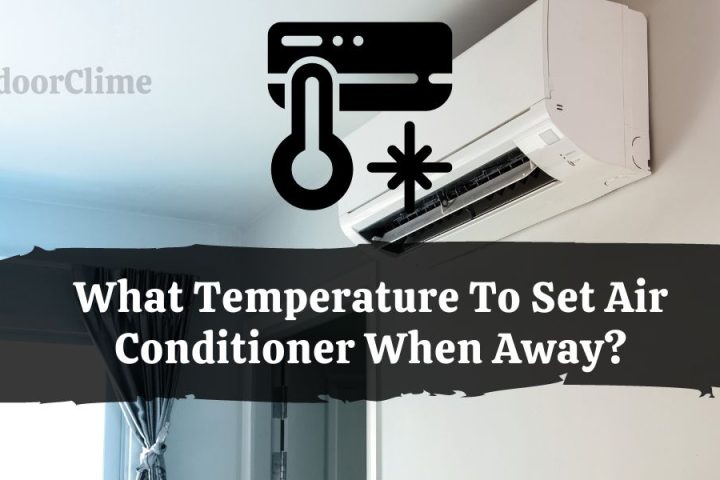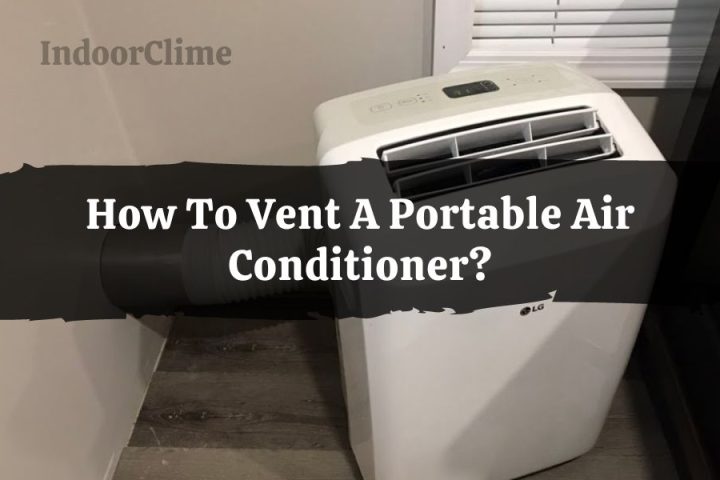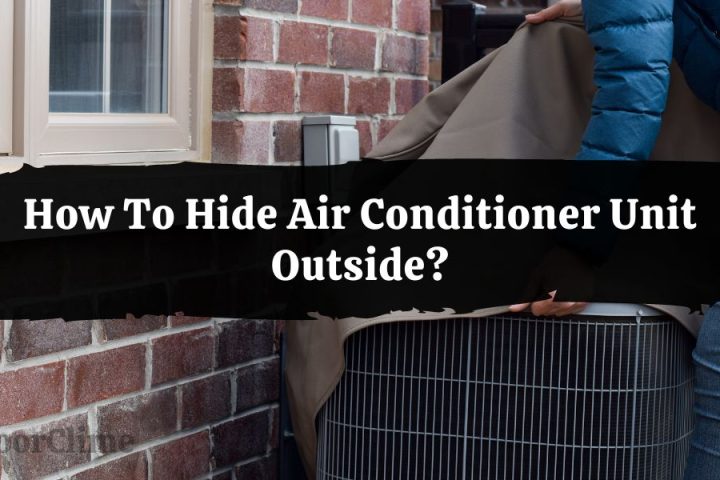Temperatures outside have been rising, but what’s happening inside? You may have noticed your air conditioner kicking on more often or for more extended periods, especially if you live in or have been near a heavily populated area.
Here we’ll examine home air conditioner usage and factors affecting energy consumption.
Air conditioners are intended to be installed in places with temperatures below 100 degrees Fahrenheit.
As outside temperatures exceed 100 degrees Fahrenheit, the AC can consume more energy and begin to malfunction or fail. Ideally, the surrounding temperature should always be below 100 degrees Fahrenheit for optimal performance.
How Does Outside Temperature Affect the Air Conditioner?
An air conditioner is considered to make your life comfortable. It’s a lifesaver and other appliances that can keep your home cool during those hot summer days and nights. But did you know that the more desirable outside, the harder your air conditioner works to keep your home cool?
So even if you don’t use the AC too much, it’s essential to understand how outside temperature affects the air conditioning.
It is because of thermodynamics, which is the study of heat transfer. When you’re in a building or house, and it’s hot outside, heat transfers through walls and doors, and windows. The same thing happens when you have an air conditioner on; instead of heat going into your space, it moves out through the air conditioner.
Here are the several factors that affect how much the outside temperature affects your AC:
AC Cooling Time
When it is hot outside, air conditioners take longer to cool your house. Because the temperature outdoors and the air temperature inside your house significantly affect how much energy your HVAC system needs to use to cool your home.
The hotter outside, the more complex the air conditioner must work to keep your home cool. Air conditioners are rated to produce a certain amount of cooling power; when you turn on the AC and the temperature is lower, it will not be working at total capacity.
As the temperature rises, your air conditioner will take longer to cool your home. So it is when your air conditioner has to work harder and longer to keep up with the heat that is coming from the sun.
AC Energy Consumption
It takes more power for the AC to work when it is boiling outside than when it is cooler. The reason for this is that it has to work harder and longer.
Therefore, you will find that if you live in an area with very high temperatures for most of the year, you can expect your AC bill to be relatively high. One way around this problem is switching off your AC during the day when you are not at home or out of town.
The additional workload of cooling down a hot room may increase your electricity bills at the end of every month. Unfortunately, the added workload can cause frequent breakdowns and other problems requiring HVAC maintenance services.
The lifespan of the Air Conditioner
Many people think they only need an air conditioner during summertime, so they switch it off when the season ends. However, this practice can shorten the lifespan of your air conditioner. Instead, experts recommend running your AC all year long to ensure optimal performance.
When you run it continuously, there will be no unnecessary pressure on the compressor and other parts of the unit, thus, preventing them from any damage caused by extreme weather conditions.
The extra workload can shorten your AC’s lifespan if you don’t schedule regular maintenance to ensure proper operation and efficiency. It could mean frequent breakdowns, which affect your comfort and finances equally.
AC Drain Water

Because warm weather means more moisture in the air, your AC unit will need to work harder to expel all that excess water vapor from home. When this happens, you might notice more drain water coming from the drain line connected to your evaporator coil or pan.
Your air conditioner will also produce more drain water in hot weather, especially when the humidity is high. If water overflow occurs, a lot of drain water may come out from the unit or even a leak in your ceiling if your AC is installed on your roof.
Most air conditioning units are designed to remove humidity, but not all can do so effectively.
AC Noise Level
An air conditioner generally produces three types of noise: Mechanical sound, Internal fan sound, and Outdoor fan sound.
The mechanical sound is produced by moving parts inside the AC unit, like compressors and motors. The internal fan sound is generated from the internal blower that circulates indoor and outdoor heat. Finally, the outdoor fan sound is fabricated by the fan located on the exterior part of the unit that blows away hot air from indoors to outdoors.
When the outside temperature goes up, it increases the workload of the air conditioner’s internal and external fans, resulting in louder noise from these fans.
What Temperature is Too Low for Air Conditioner?

Knowing what outdoor temperature is too low for your air conditioner is vital. In addition, you’ll want to know when you should shut down the unit before it’s too late. The same range at which an air conditioner is effectively operated depends on the unit you have, so check your manual or contact your manufacturer with any questions about your specific model.
Generally, however, all air conditioners operate within an outdoor temperature of 14-115°F (–10-46°C). Therefore, if the outside temperature falls below 14°F (-10°C), the air conditioner may freeze up and cease functioning properly.
The same concept applies in winter: an air conditioner will not work correctly if it’s too cold outside. Air conditioners operate at an extreme temperature of 5-64°Farenheit (–15-18°C). If the external temperature falls below 5°F (-15°F), this could cause damage to or failure of the equipment. So always keep a close eye on the temperature outside to ensure your unit operates correctly.
How To Help Air Conditioners in Hot Conditions?
Air conditioners are the best source of relief in these weather conditions, but sometimes they might also fail to work appropriately in hot weather conditions. It can happen because of various reasons.
Here are some tips to help you determine and make your air conditioner work appropriately in hot weather conditions.
Clean the Air Conditioner Regularly.
In making the AC unit maximize its cooling effect, it is necessary to clean and maintain the machine. If you find dust on the machine’s surface, please clean it in time to ensure good heat dissipation performance.
Dust can clog up the unit and prevent effective heat exchange. Therefore, you should clean both the filters in the unit and any filters located in a more extensive system of which the air conditioner is a part.
Ensure Good Refrigerant Pressure.
The refrigerant pressure will be perfect when a new unit is installed, allowing the unit to cool effectively while consuming less power. However, there may be leaks on the indoor or outdoor unit as time passes, reducing the amount of refrigerant in circulation.
The reduced refrigerant will make it difficult for the AC to cool because there is less heat exchange between cold and hot surfaces. In addition, it may cause the compressor to overheat, making it weak and ineffective in cooling your home when needed.
Make Sure the Outdoor Unit Is Well-Ventilated.
Make sure the outdoor unit is adequately ventilated. Clear any brush or debris blocking ventilation, and ensure no plants or other obstructions are within two feet of the condenser unit.
Your outdoor unit needs access to ventilation. It removes heat from your unit’s inside and releases it into the air outside. If vents are closed or obstructed, hot air may build up inside your unit and cause it to overheat and shut off prematurely.
People Also Ask
Does low outside temperature affect the air conditioners?
Like most appliances and machinery that produce heat, air conditioners rely on a heat exchanger to pass on thermal energy from one place to another. It means taking the hot air inside your home and moving it outside by absorbing and transferring its thermal energy to an air conditioner.
The colder the air outside is, the more efficiently the air conditioner can cool the air inside your home. Hot air has higher thermal energy than cold air, meaning more energy for the heat exchanger to transfer. The more complex the outside air is, the less work it takes for a heat exchanger to rid your home of all of its heat.
Air conditioners are generally less efficient when forced to cool your home in warmer temperatures, as they have to overwork to transfer the same amount of thermal energy.
At what temperature does an AC not work?
It’s important to note that air conditioners aren’t intended to work in all temperatures. You should never operate your unit if the temperature is below 65 degrees Fahrenheit (18 degrees Celsius).
If an AC unit doesn’t cool your room, it could be because the unit is set too high or because the room is too hot. It could also be because the temperature outside is lower than 60°F. You may need to wait for several hours to be above 60 degrees Fahrenheit before using your portable air conditioner.
Does AC work better when hot?
Air-conditioners work harder as outside temperatures climb. When the ambient temperature increases, the cooling system has to cool down more to get the temperature inside your home or business down to a comfortable level. As a result, higher temperatures mean longer cooling cycles and more energy consumption.
However, another way to think about this is that the unit doesn’t have to do as much work to cool things down if it’s colder. So it is when the AC can take advantage of “free cooling”—using cooler external temperatures to chill warm indoor temperatures.
Given this information, it makes sense why many people report that their air conditioning works best in cooler weather. However, when the temperatures are higher outside, there’s a minor difference between inside and outside temperatures.





